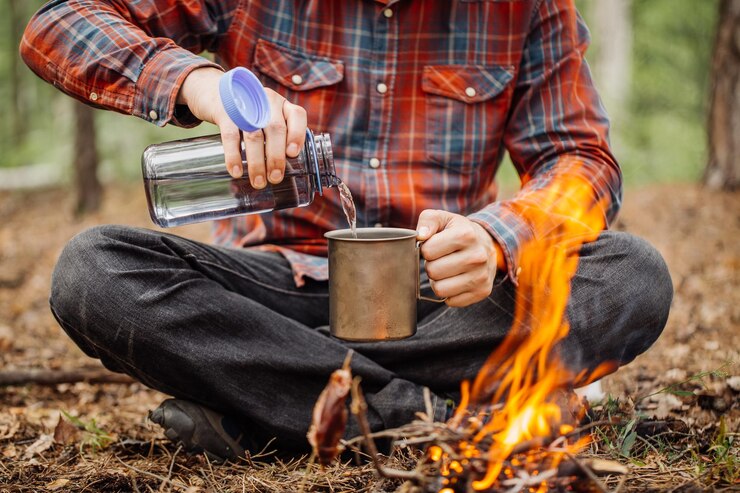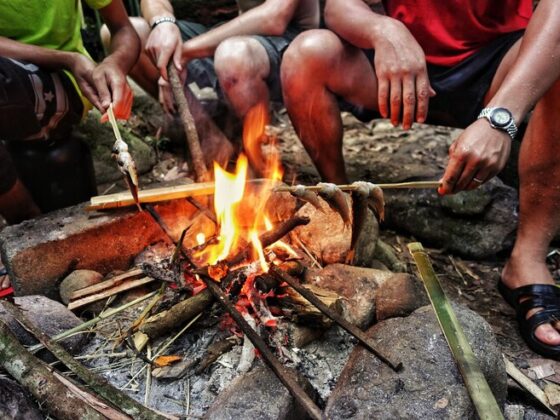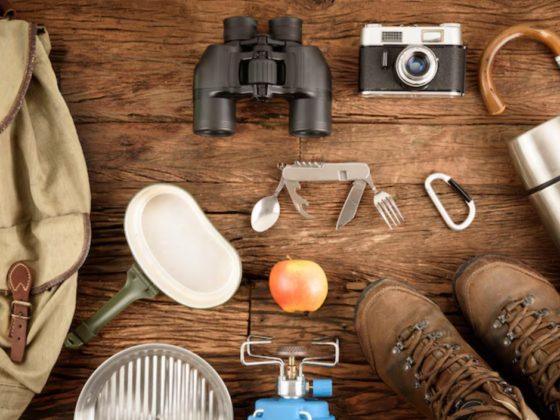There’s something undeniably magical about sipping a freshly brewed cup of coffee as the sun rises over a quiet campsite. The gentle hiss of the boiling water, the earthy aroma of freshly ground beans, and the comforting warmth of a steaming mug in your hands—all of these small details come together to create a moment that’s both grounding and invigorating.
Coffee and camping are a match made in heaven. Whether you’re hiking deep into the mountains, spending a lazy weekend in the forest, or enjoying a serene beach camping in Batangas trip with friends, coffee brings an extra layer of comfort and ritual to your outdoor experience. But making great coffee outside your kitchen is more than just tossing some instant powder into hot water. With a little preparation and the right approach, you can brew a cup that rivals your favorite café—even in the middle of nowhere.
Why Coffee Tastes Better Outdoors
Many campers and hikers will tell you that coffee just tastes better in the wild. It’s not just in your head. The combination of clean air, open skies, and the sense of slowing down to really appreciate the moment enhances your sensory experience. When you’re away from the distractions of everyday life, that cup of coffee becomes more than a habit—it becomes a ritual.
It’s about more than just caffeine. It’s warmth on a cold morning. It’s a reason to linger by the fire. It’s a pause before the day’s adventure. For many outdoor lovers, coffee is as much a part of the camping routine as setting up the tent or packing the gear.
Planning Your Camp Coffee Setup
The first step to brewing excellent coffee in the wild is planning. You don’t need to haul your entire kitchen with you, but choosing the right equipment matters. Your setup will depend on how much space and weight you’re willing to carry.
Here are some of the most common methods for brewing coffee outdoors:
-
Pour-over: Lightweight and easy to pack, pour-over cones are a popular choice for campers who want clean, bright flavors. Pair it with a reusable filter and a sturdy mug.
-
French press: Great for car camping or short hikes, a travel-friendly French press gives you rich, full-bodied coffee.
-
AeroPress: Known for its versatility and quick brew time, the AeroPress is a favorite among backpackers. It’s compact, durable, and produces strong coffee with minimal cleanup.
-
Percolator: A nostalgic option for many, the percolator is ideal for traditional campfires. It takes a bit more time but offers that classic camping coffee feel.
-
Instant coffee: While it lacks the richness of freshly brewed beans, high-quality instant coffee has come a long way. It’s convenient and nearly weightless—a great backup.
Whatever method you choose, make sure it suits your trip. Backpacking across rugged terrain? Go ultralight. Car camping with friends? Feel free to indulge in a more elaborate setup. Be sure to check out brands like Frontrunner Philippines for better options.
Beans, Grind, and Storage
Once your brewing method is sorted, the next step is choosing your beans. Freshly roasted coffee beans will always taste better than pre-ground or stale coffee. If possible, grind your beans just before brewing.
For camping, a manual grinder is your best bet. It doesn’t require electricity, and most are compact enough to fit in your backpack. Choose a grinder that matches your brewing method—coarse for French press, medium for pour-over, fine for AeroPress.
Keep your beans or grounds in an airtight container to preserve freshness. Moisture, air, and light can all ruin the flavor, so pack smart. A resealable bag with a one-way valve works well, or a small vacuum-sealed container if you’re extra particular.
Water: The Often Overlooked Ingredient
The water you use to brew coffee is just as important as the beans. If you’re camping in the backcountry, make sure to purify your water before using it. Unfiltered water can carry bacteria and minerals that affect both taste and safety.
Bring a portable filter or use boiling to purify water collected from streams, rivers, or lakes. And if you’re boiling water for coffee, let it cool slightly before pouring it over your grounds. Too-hot water can burn the coffee and lead to bitterness. Aim for around 195°F to 205°F.
The Brewing Process in the Wild
Now comes the fun part—brewing. This isn’t about perfection. It’s about slowing down and enjoying the process. Let the surroundings guide your rhythm.
-
Start by boiling water over your stove or campfire.
-
Grind your beans if they aren’t pre-ground.
-
Set up your brewer—pour-over cone, French press, or whatever method you brought.
-
Add your grounds and begin pouring the hot water in slow, steady circles.
-
Wait and savor the aroma as your coffee blooms.
Take your time. Let the process be part of the experience. There’s something almost meditative about making coffee in the wild, where every step is intentional and connected to nature.
Pairing Coffee with the Camping Vibe
Coffee at home is often hurried. Camping coffee is slow and deliberate. Pair your cup with simple joys. Watch the ocean waves roll in, feel the wind sweep through the trees, or listen to the birds come alive in the morning light.
If you’re enjoying beach camping in Batangas, try pairing your coffee with an early morning dip in the sea or a short walk along the shore. The quiet of the beach at dawn combined with a warm mug in hand is a kind of peace that’s hard to find elsewhere.
Tips for an Even Better Coffee Experience
-
Pre-measure your coffee grounds at home to save time and ensure consistency.
-
Bring a lightweight scale if you’re particular about ratios (1:15 coffee-to-water ratio is a good baseline).
-
Use insulated mugs to keep your coffee warm longer, especially in cold climates.
-
Clean your gear properly—coffee oils can go rancid and affect future brews.
-
Experiment with flavors—a sprinkle of cinnamon, a drop of vanilla, or a splash of milk powder can elevate your cup.
Sustainability in the Campsite Kitchen
Respecting nature means leaving no trace. That includes how you make and dispose of your coffee. Use reusable filters or biodegradable paper ones. Avoid single-use pods or plastic-heavy gear.
Dispose of your coffee grounds responsibly. If you’re in a remote area, scatter them far from water sources or pack them out in a sealed bag. Never dump coffee into rivers or lakes—it can affect the pH and harm aquatic life.
Coffee and Community
One of the lesser talked-about joys of camping coffee is how it brings people together. Sharing a pot with friends or offering a mug to a sleepy fellow camper fosters warmth and camaraderie. The act of brewing for someone else, even in the simplest way, becomes a gesture of care and connection.
In many ways, coffee becomes the social centerpiece of a campsite. It starts conversations, prolongs quiet moments, and adds comfort to cold mornings. Whether you’re a solo adventurer or part of a group, coffee adds soul to the camping experience.
Final Thoughts
Brewing the perfect cup of coffee in the wilderness isn’t about achieving barista-level precision. It’s about embracing the moment, savoring your surroundings, and using coffee as a way to slow down and reconnect with yourself, with others, and with nature.
With a bit of preparation, you can transform your camping mornings into something more meaningful. And for those who love gear, exploring rugged terrain, or trying new outdoor rituals, the growing outdoor coffee scene is alive and well in communities where adventurers and outdoor lovers often swap tips, gear recommendations, and shared brews over trailside conversations.
Whether your campsite is deep in the mountains, beside a quiet lake, or along the coast, remember this: the perfect cup of wilderness coffee isn’t just about flavor, it’s about feeling present, awake, and alive in the world around you.



